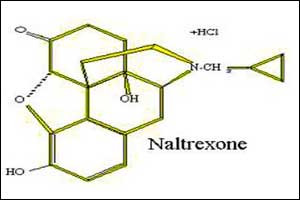- Home
- Editorial
- News
- Practice Guidelines
- Anesthesiology Guidelines
- Cancer Guidelines
- Cardiac Sciences Guidelines
- Critical Care Guidelines
- Dentistry Guidelines
- Dermatology Guidelines
- Diabetes and Endo Guidelines
- Diagnostics Guidelines
- ENT Guidelines
- Featured Practice Guidelines
- Gastroenterology Guidelines
- Geriatrics Guidelines
- Medicine Guidelines
- Nephrology Guidelines
- Neurosciences Guidelines
- Obs and Gynae Guidelines
- Ophthalmology Guidelines
- Orthopaedics Guidelines
- Paediatrics Guidelines
- Psychiatry Guidelines
- Pulmonology Guidelines
- Radiology Guidelines
- Surgery Guidelines
- Urology Guidelines
Naltrexone more effective in alcoholics who also use nicotine/cigarettes

A number of medicines are available for alcohol addiction which help people to reduce or stop their drinking. Naltrexone is one such medication approved for treatment of alcohol dependence by the Food and Drug Administration, FDA. Although naltrexone can reduce alcohol craving and help promote recovery for some individuals, it does not work for everyone. In a new research, it has been found that naltrexone is more effective for alcohol-dependent individuals/alcoholics who also use nicotine/cigarettes.
Prior research suggested that nicotine use/smoking status and genetic differences were predictors of response to naltrexone. This study further investigated the impact of nicotine use/smoking status and variation in the mu opioid receptor gene (OPRM1), specifically, an A118G single nucleotide polymorphism (SNP, or DNA sequence variation), on the effects of naltrexone on a range of drinking outcomes.
Study participants (n=146; 101 males, 45 females) were enrolled in a 16-week randomized clinical trial comparing naltrexone with placebo treatment. All participants met Diagnostic and Statistical Manual of Mental Disorders, 4th Edition (DSM-IV) criteria for alcohol dependence. After initial assessment, they were genotyped for the OPRM1 A118G SNP and balancing on whether they used nicotine/cigarettes were randomly assigned to be treated with either naltrexone (50 mg/day) or placebo. The researchers assessed and analyzed alcohol use and smoking during the trial.
Results confirmed previous findings that naltrexone is more effective for alcohol-dependent individuals who also use nicotine/cigarettes. Nicotine users/smokers showed a significantly lower percentage of heavy-drinking days (confirmed by a blood test for heavy drinking) while receiving naltrexone versus placebo. The effect was not seen in non-nicotine users (non-smokers). Naltrexone did not change cigarette use by smokers during the study, and the change in smoking did not influence whether naltrexone reduced alcohol consumption. However, the authors noted that participants were not seeking smoking cessation, and medical management did not address this issue. They hypothesized that excess brain dopamine release in heavy alcohol users who also use nicotine/smoke could make them more treatment-resistant in general, but more sensitized to naltrexone's dopamine lowering effects -- leading to their greater response to treatment with the medication than non-smokers.

Disclaimer: This site is primarily intended for healthcare professionals. Any content/information on this website does not replace the advice of medical and/or health professionals and should not be construed as medical/diagnostic advice/endorsement or prescription. Use of this site is subject to our terms of use, privacy policy, advertisement policy. © 2020 Minerva Medical Treatment Pvt Ltd